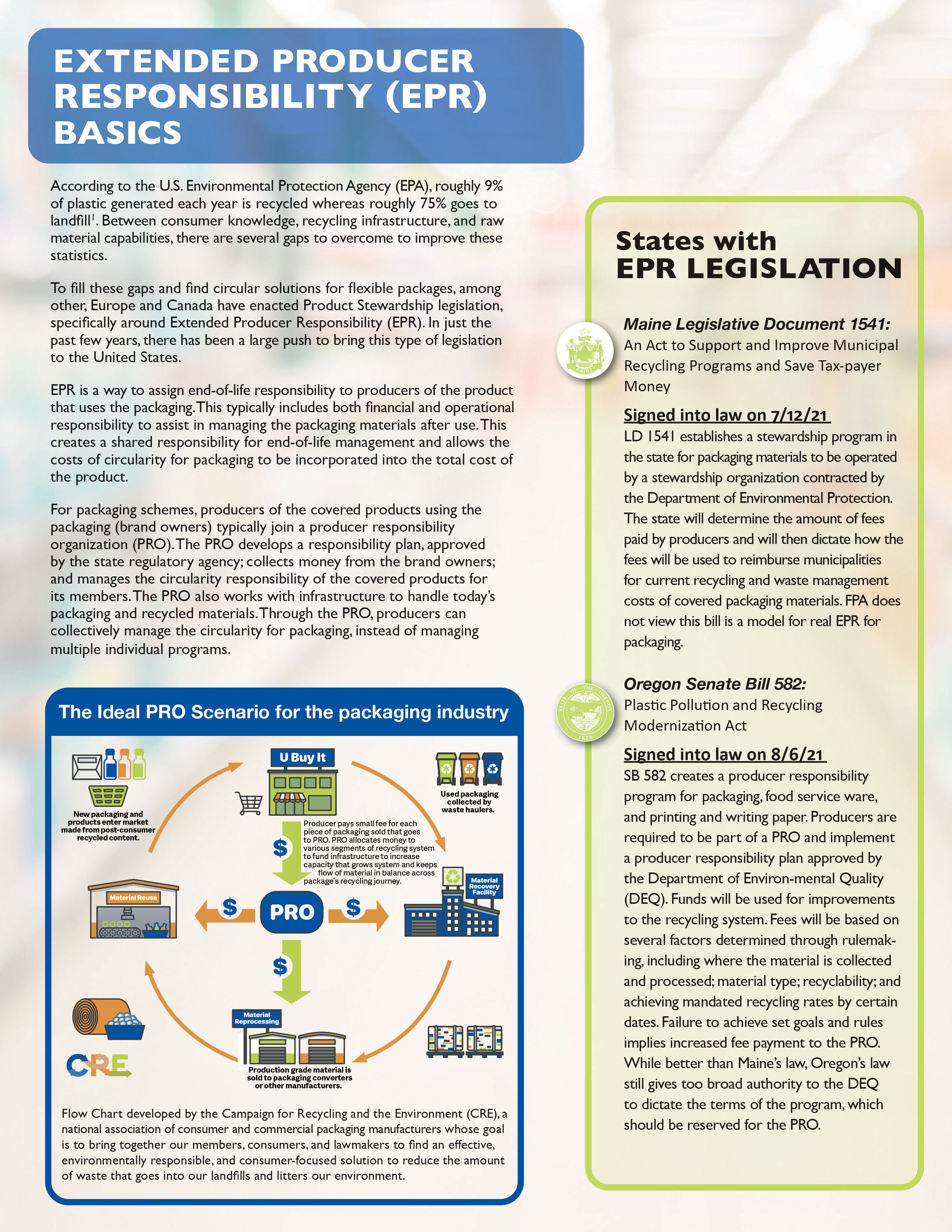Fact Sheet Explains Extended Producer Responsibility
Document Shareable With All Stakeholders

IN THE PREVIOUS issue of FlexPack VOICE®, the advocacy group of the Flexible Packaging Association’s Emerging Leadership Council (ELC) brought you a flow-chart to outline the federal legislative process and help bring clarity to how bills are passed.
Extended producer responsibility (EPR) is one policy driver that passed through recent legislation in Maine and Oregon that the group will be spreading awareness about.
It is important to start these conversations early so that those affected by potential EPR legislation have a firm understanding of the topic.
As leaders in the flexible packaging industry, we are often asked by our own customers or colleagues how EPR will impact their day-to-day operations. They also want to know what they need to monitor going forward.
A host of states have either passed or are strongly considering EPR legislation as it pertains to packaging, and it is important that everyone has a fundamental understanding of the topic. Essentially, EPR puts the responsibility for ensuring a circular economy on the producers of plastic waste. That often means financing recycling systems, as well.
The advocacy group saw a need to develop a reference document that could be shared with the supply chain. We also wanted to help educate ourselves, our customers, and the consumers of goods packaged in flexible packaging. The fact sheet touches on the following aspects related to EPR:
- The basic elements of EPR
- An overview of the Maine and Oregon EPR legislation
- How producers and consumers may be affected by EPR legislation
- The Flexible Packaging Association’s policy surrounding EPR
- Important terms to know
While different states may propose legislation in different ways with different rules, the backbone remains the same. This fact sheet helps serve as a guide to provide a fundamental understanding of EPR.
A digital copy of fact sheet can be found at www.flexpack.org/end-of-packaging-life. Feel free to share it. It is important to start these conversations early so that those affected by potential EPR legislation have a firm understanding of the topic.
You can look forward to further insights from the advocacy group as it pertains to legislative updates and simplified breakdowns of pertinent new legislation that is passed in the future.


